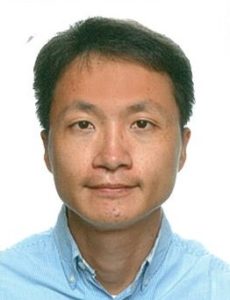
- Fellowship year:2016-2017
- University: Northwestern University
- Dissertation Topic/Category: China/United States
- Dissertation Title: Reorienting Orientalism: The Making of Chinese Cultural Diplomacy in the United Sates, 1926-1974
Studying my native country from afar has generated my abiding curiosity about the cultural connections between China and the United States. Often inspired by Edward Said's critique of Orientalism, scholars interested in this topic have written extensively on how specific Americans, especially missionaries, shaped U.S. understandings of China. But their Saidian framework is much less articulate on how Chinese themselves influenced such understandings. My archival research in the United States, China, and Taiwan has uncovered systematic efforts by different Chinese actors through channels such as the public talks, art exhibitions, and teacher training to teach Americans about what they considered the best of Chinese culture. My dissertation foregrounds a bifurcated project of Chinese cultural diplomacy between the China Institute in America, a semi-private organization cosmopolitan Chinese intellectuals directed to promote culture as an inherently worthy cause, and the Nationalist Chinese state, which scrambled to use Chinese culture as a diplomatic tool. The Institute's inadequate finance and the Nationalist state's challenge in maintaining its international legitimacy necessitated their contingent collaboration against the political upheaval in China and Taiwan. But without a stable organizational platform, such cultural diplomacy struggled to make a sustainable impact on how Americans inderstood China.
My dissertation has broader significance for the history of modern China and beyond. It underscores the Chinese intellectual and political leaders' growing awareness of their country's disadvantaged status in the modern international order and their ambition to challenge the foreign dominance in the narration of China in the West. This marked a fundamental shift in the Chinese thinking of China's position in the world. By highlighting China's limited agency in constructing its own images abroad, my disseration joins similar studies on seemingly weak polities, such as Israel and South Vietnam, in pushing the interdisciplinary scholarship on cultural diplomacy beyond more established powers.
